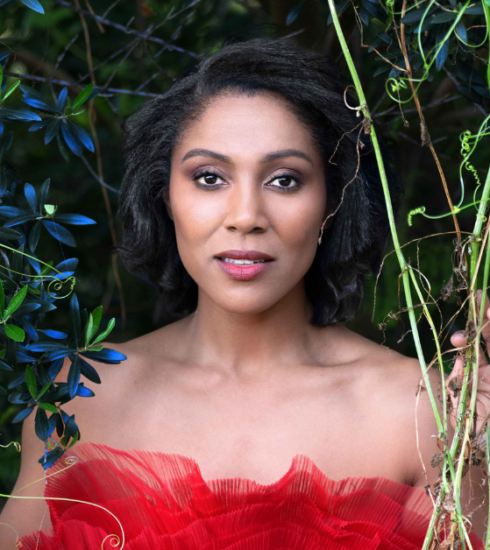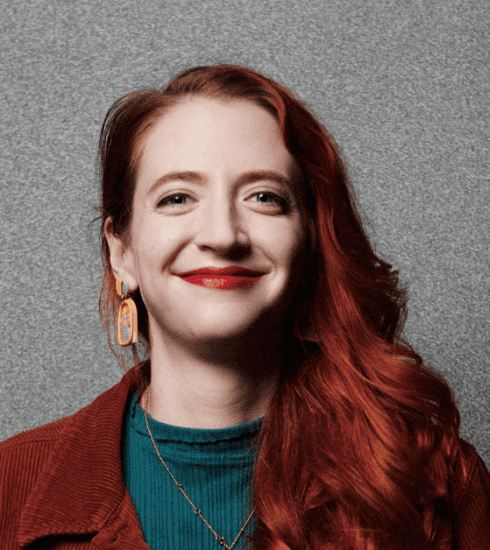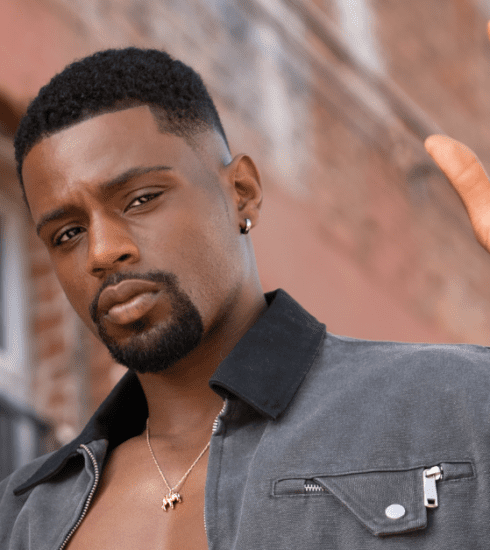Mikayla Bartholomew is the product of Black women who came before her & a beacon of inspiration for the next generation of Black women!
When people say I am my ancestors’ wildest dreams, I immediately think of Mikayla Bartholomew after our interview. Recognized for her film debut in the Oscar-nominated film King Richard, she is an actress and advocate you should know. This young woman works effortlessly outside of the entertainment industry to bridge the equality gaps in society. She is doing this by being part of a few organizations where she can leave a lasting impact because, right now, this world needs all the help it can get.
This was a fun and inspirational conversation where I learned more about her journey in acting, how advocacy chose her, and why she stresses the importance of having open spaces for Black women to show up as their authentic selves.
Cox: Mikayla, I’m excited to speak with you. You are a phenomenal woman making her way as an actress and advocate. I want to know where it all began for Mikayla and how she got into acting.
Bartholomew: Okay so it’s funny because I was a sports kid. I did everything cheerleading, hockey, volleyball, and track and field. Unfortunately, I got injured right before I started my freshman year in high school and had to get surgery. Then the following year, I got a different injury, resulting in me not playing any sports.
So, by the time I applied to colleges, I had only applied to schools pre-med and just one for theatre. I wanted to be an obstetrician-gynecologist, but during my senior year applying for university, my mom developed a heart condition while my dad (who was in the Navy) was stationed overseas. So, I made the choice not to go out of state for college and stay local in Virginia. It just so happened that Virginia Commonwealth University was the only school I auditioned for with a theatre department. So, I decided to study theatre and pre-nursing to be closer to home.
Cox: Wow, you love your education and your family. This is beautiful to hear. So, when was it in college that you decided that theater was going to be the only path for you
Bartholomew: I finished my pre-nursing track early, and all I had left was theater. But then I picked up a minor in gender sexuality and women’s studies to round myself out. That’s when I told mom and dad, I would let these medical school dreams go because I knew I wanted to do theater professionally.
I don’t want to age myself because I have been working professionally since my junior year in college. So, it’s almost been a decade.

Cox: You have had some fantastic success in this industry. How’s the journey been in this challenging industry? What’s kept you going and grounded at the same time?
Bartholomew: I’ve had incredible Black women mentors in my life. Dr. Tawnya Pettiford-Wates, who was in the original Broadway cast and national tour of “for colored girls who have considered suicide when the rainbow was enuf”, and Anunjanue Ellis, who I starred alongside in the film King Richard, instilled in me that was is ours is ours. So what is meant for me is meant for me and me alone, nobody else. When I don’t get a role and see the person who did since we’re all crossing paths in this tight knit industry, I’m reminded that the part was always meant for them.
I know it’s hard when an actor doesn’t get a particular role, especially for Black women, because this industry loves to pit us against each other. But I take a step back after each audition and opportunity to remember that there is an innate design behind it all. And that the “no” happens because a “yes” is on its way.
To be honest, this happened with the King Richard film. Before the callback, I had auditioned for a project that was on HBO. I wanted it something serious but didn’t get it. A few weeks later, I got the call for the chemistry read for the King Richard film. In hindsight, hadI gotten the role on the HBO project, I wouldn’t have been able to do King Richard.
Cox: I love that you mentioned the industry pitting Black women against each other because it must stop.
Bartholomew: That’s absolutely true. We have to reimagine and redefine this space for Black women. I want us to consider how we can honor Black women more and make room for them. We must lean into collaborating and building one another up considering our society is so critical of and disrespectful to Black women. We must do more for Black women in love, in the spirit of making things better for them.
Making room creates spaces where Black women feel welcome as their authentic selves. I know I’m at my best when I’m authentic. I spent too many years denying my authentic self for the sake of being amenable.
Cox: You said that beautifully. In this day and age of social media, people have these issues with FOMO and can’t really support each other. We should be able to scroll and see people and say I’m happy for you.
Bartholomew: Yes, exactly, that’s what I look to do. How can I add more views to your project so you can get those residual checks? This is important because the more we amplify each other, the more mainstream media opportunities will be available for us.

Cox: You are exceptional! Now I want to dive deeper into Mikayla, the activist.
Bartholomew: I talked to my mom the other day because this question has been coming up for me recently. And I always say that my mom was the most prominent advocate I knew growing up. Though she wouldn’t identify herself as such. However, my mom was the person in the neighborhood making sure kids had clothes on their backs and supplies for school. She ran a daycare out of our family room for single mothers and fathers, especially those in the military. My mother did all these things and more, which she got from our grandmother.
So, by the time I was in college and Black Lives Matter was percolating in the media and our communities, I started volunteering and leading and organizing protests. I spoke out to my own theater department because our curriculum was disproportionately harming Black students. I had to speak up because our class help the most significant number of Black students the school had seen in ages and we didn’t deserve to be tokenized and mistreated.
We have to speak up; if no one will listen to those most directly impacted by a problem, then I will speak even louder for not only myself but my people.
In my senior year, I won a grant for my university to produce and direct a World Premiere production for which I paid every student involved. This was used as a fundraising effort and an art installation fighting the erasure of Black history. This all came about after I told my department in my senior presentation I believed that the program was not only racist but causing harm to its marginalized students and that I couldn’t spend my senior year doing their shows.
Cox: I love the boldness and setting an example for others. How did you get involved with the Broadway Advocacy Coalition?
Bartholomew: That’s a funny story because I sent Amber Iman a DM on Instagram. I loved what she was doing with Broadway Advocacy Coalition and wanted to let her know that I was interested in applying. So, I sent them the production I did in college and became their first resident artist. So, I’ve been with them since 2018.
Cox: So how did you get involved with New York Civil Liberties Union because everything seems to just line up.
Bartholomew: They contacted me because of my work with Broadway Advocacy Coalition. They wanted me to be an artist ambassador. And I have been working with them and Broadway Advocacy Coalition to help advance policies in New York regarding education inequity, immigration, voting rights, and more. So you name it, and we are doing it.
Cox: I would like to briefly discuss your newest project, Dear Mama.
Bartholomew: It was such a beautiful experience to be part of it. There is something so special about the director Winter Dunn. She created such a safe space for us as artists for this project. I can’t really describe how monumental it was.

You see my character Tanisha who is grieving the loss of her mother and Tupac at the same time. It’s almost as if she can’t breathe and is trying to catch her breath. She is in this constant state of anxiety where she can’t figure out her emotions.
Being in such a film is beautiful because projects like these showcase how universal Black stories are. They remind the masses we are relatable and aren’t monolithic.
Cox: So Dear Mama just won the NAACP Image Award for short film. How do you feel?
Bartholomew: I am absolutely floored that our film was honored in this way. Winter is a visionary director and I was blessed to be chosen to be in this film so thank you to the NAACP for making room for us & to my Dear Mama family for giving me a part that allowed me to tell a story about and young Black girl just trying to make it through.
Cox: Mikayla, speaking with you has been such a fantastic time. Before we go, I want to ask you why it is vital that you leave this world better than how you came.
Bartholomew: I know this might sound cynical. We might not see the fruits of our labor in this lifetime, but we have generations underneath us who will. So the work we’re doing now is more than worthwhile.
I have learned that we must make this journey of evolution and liberation until all of us are good because “none of of us are free until we are all free” – Fannie Lou Hamer. It doesn’t matter how long it takes. I know I will keep pushing like my ancestors did for me. That’s the whole point of my work.






